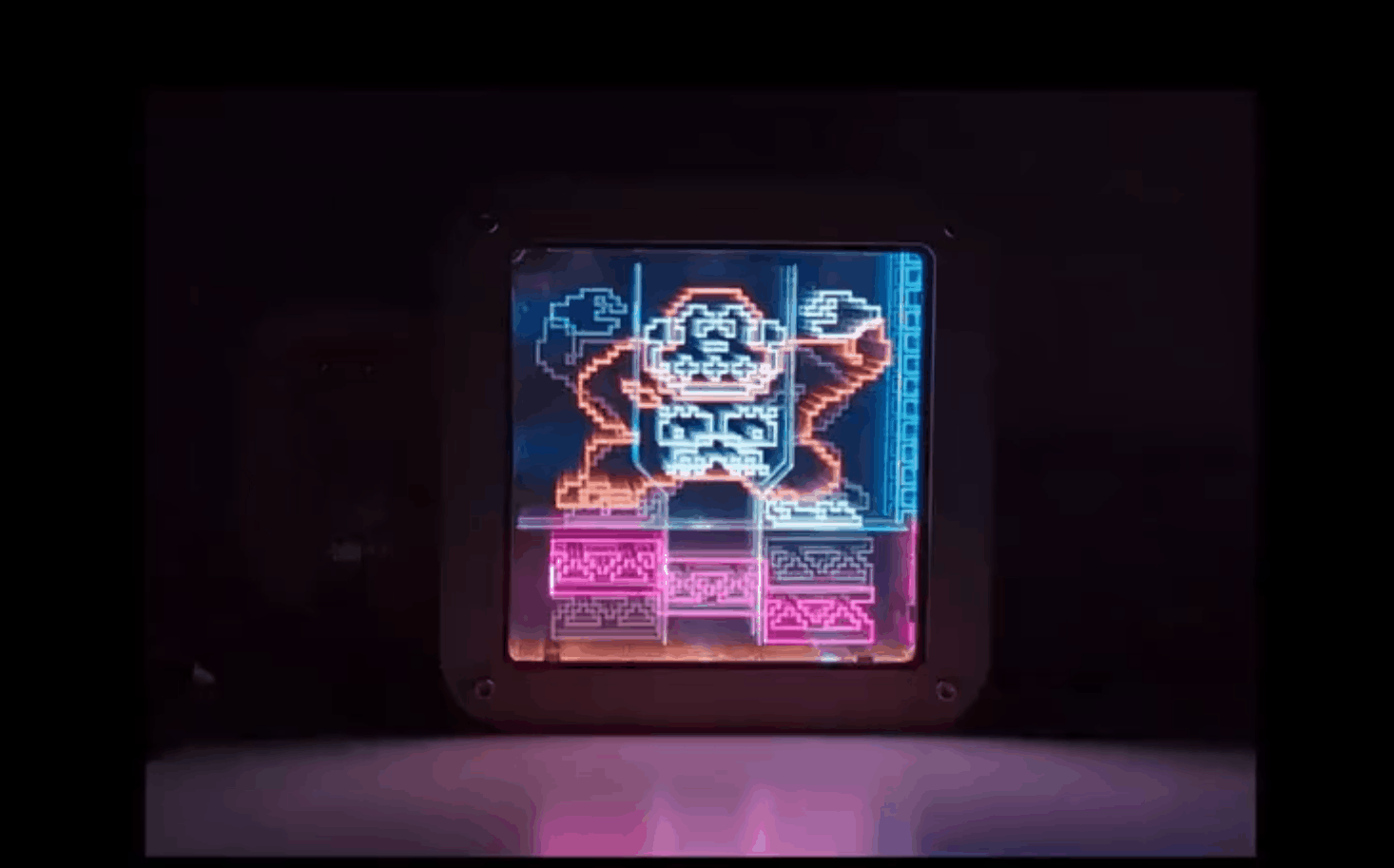
Surely it’s safe to say that many makers consider PCBs like the Raspberry Pi to be works of art. But we can take things a step further by using the Pi to create works of art, too! That’s what this maker has done with what they call Sprixels. Using our favorite microcontroller, the $4 Raspberry Pi Pico, they’ve created beautiful animated LED pixel art frames made from illuminated acrylic sheets.
Our latest animated 8 bit retro frame - Kong-ish. Laser etched acrylic, 3D printed and PiPico driven LEDs allowing for daisy chaining multiple 8 bit blasts of nostalgia. #pixelart #RETROGAMING #gamingcommunity #retrogamer #arcade #8bit #16bit #atari #led #raspberrypi pic.twitter.com/ihFJHQWaKRJuly 22, 2023
The artwork features slides of laser cut acrylic, each of which is illuminated by LEDs. As a sheet is illuminated, the image which has been etched on the acrylic is illuminated. By using multiple slides, and multiple light sources an animation effect akin to Neon signage is produced. The Pico is responsible for alternating between these sheets and controlling what colors appear from the LEDs. Sprixels has managed to daisy chain seven signs together using just one Pico as a controller.
The acrylic sheets are housed inside a custom 3D printed frame that Sprixels designed just for the project. Two pieces of MDF are used to hold the frame in place. The front of the artwork is complete with a veneered oak bezel for a professional yet retro finish. This also hides some of the 12 LEDs placed around the edges of the art.
The LEDs used in the project come from WS2812B strips. These are individually addressable which make it possible to customize the artwork even further by setting specific colors. Each acrylic sheet is 3mm thick and the frame can support up to four separate sheets. You can read more details about how this design works in the original thread shared by Sprixels to Reddit.
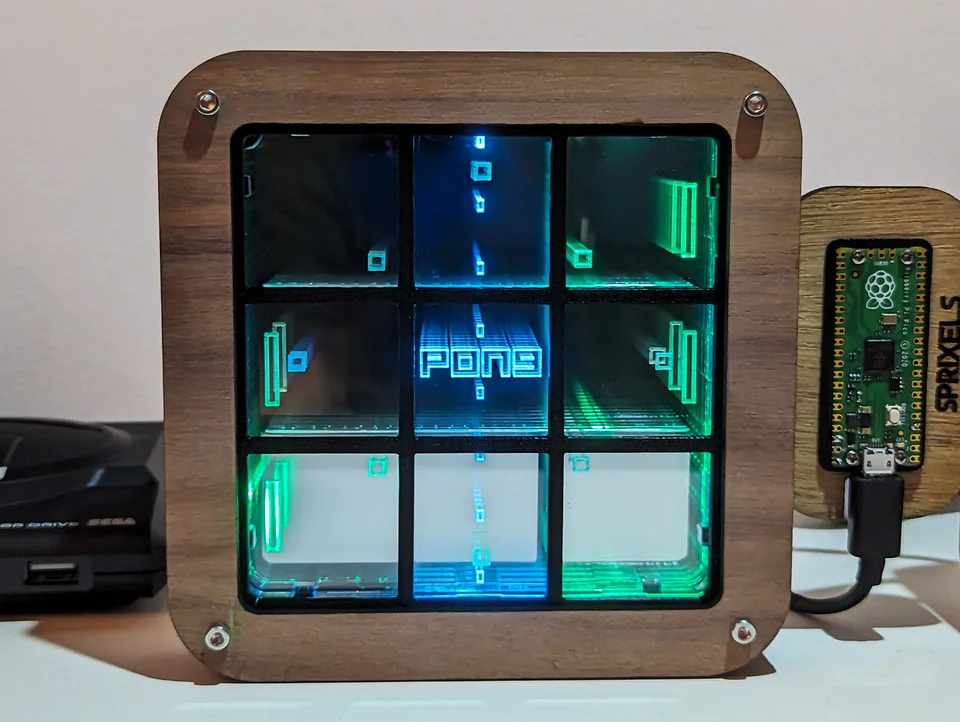
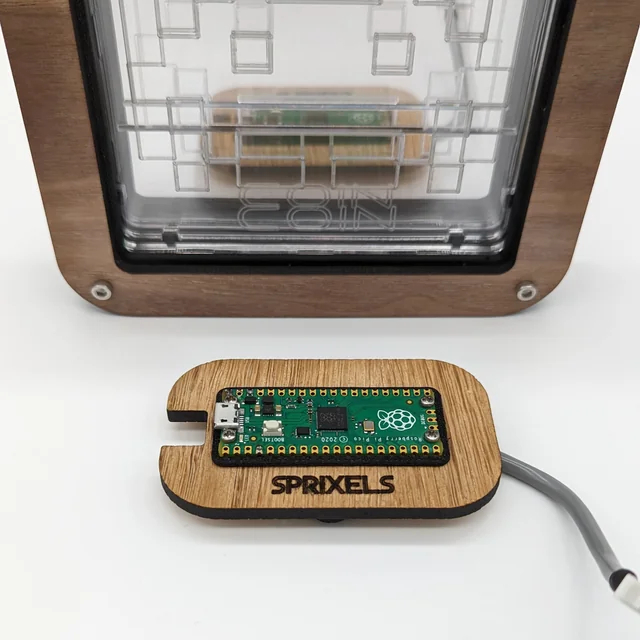
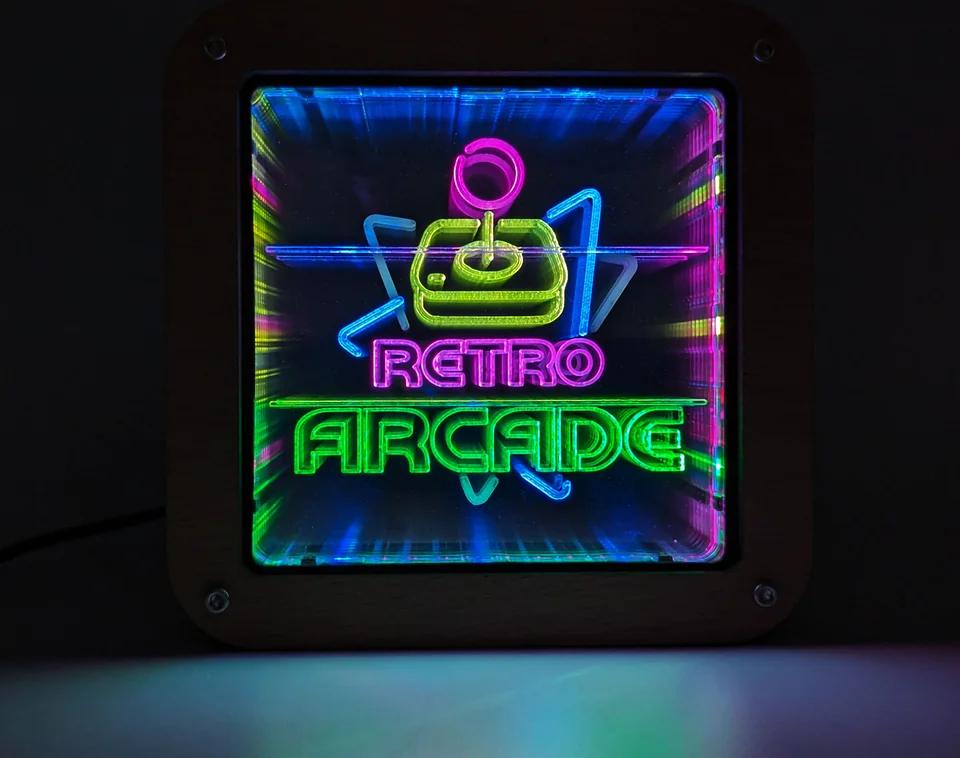
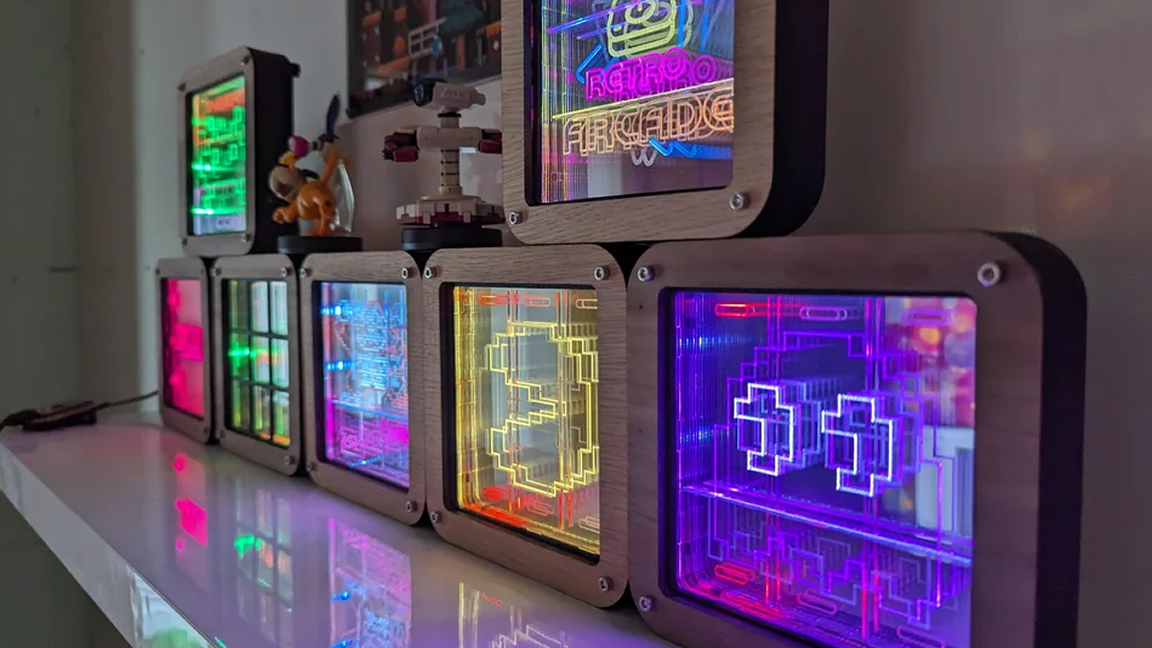
The software for the project was created using MicroPython. Sprixels explains that there are separate classes for each layer, panels and effects that can be individually programmed to get the desired animation. There are plans to share the code and make it open-source for anyone who wants to get a closer look at how it works.
If you want to see this Raspberry Pi project in action or maybe even buy one yourself, check out the official Sprixels website. There are plenty of details about the build process over at Reddit, as well, which we definitely recommend checking out if you’re interested in how it works.







